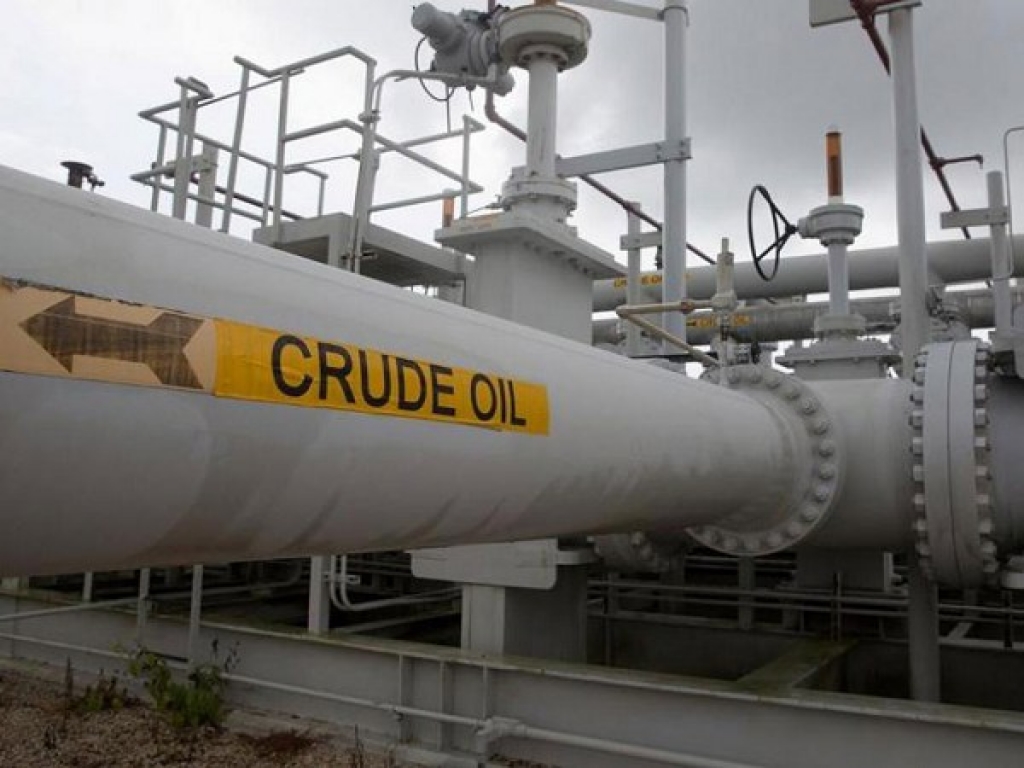 NEW YORK: US crude futures rose nearly 2 percent on Wednesday, supported by a drop in domestic inventories, while Brent edged down ahead of an OPEC meeting later this week that may result in increased global production.
NEW YORK: US crude futures rose nearly 2 percent on Wednesday, supported by a drop in domestic inventories, while Brent edged down ahead of an OPEC meeting later this week that may result in increased global production.
US crude inventories fell 5.9 million barrels last week, the largest one-week decline since January, the Energy Information Administration said on Wednesday.
Refinery crude runs rose to 17.7 million barrels per day, the highest on record for this time of year, the EIA data showed.
"Today's EIA report appeared unequivocally bullish to WTI given a much larger than expected crude stock draw of almost six million barrels that was more than double our anticipated increase," Jim Ritterbusch, president of Ritterbusch and Associates in Galena, Illinois, said in a note.
"However, the big decline in crude was almost exactly offset by a combined gasoline (and) distillate build of roughly six million barrels."
US West Texas Intermediate (WTI) crude futures for July delivery, which expires on Wednesday, rose $1.15 to settle at $66.22 a barrel, a 1.8 percent gain. WTI futures for August closed 81 cents higher at $65.71.
Brent crude futures for August delivery fell 34 cents, or 0.5 percent, to end at $74.74 a barrel.
Traders said a drop in Libyan supplies, including the loss of a 400,000-barrel storage tank, also helped support prices.
Libya's oil output has been slashed to between 600,000 and 700,000 bpd from more than 1 million bpd following clashes at its Ras Lanuf and Es Sider oil terminals, a Libyan oil source said.
An attack by armed factions opposed to Khalifa Haftar's Libyan National Army (LNA) has forced the closure of the two ports since June 14 and the declaration of force majeure on exports.
Looming large over markets, however, were meetings scheduled on June 22-23 in Vienna for the Organization of the Petroleum Exporting Countries and other big producers, including Russia.
Brent futures fell after Saudi Energy Minister Khalid al-Falih said that the market demands more oil in the second half of this year and that OPEC was converging on a good decision on production policy this week.
"Any developments on OPEC can move us," said Phil Flynn, analyst at Price Futures Group in Chicago.
Saudi Arabia is trying to convince fellow OPEC members of the need to raise oil output, sources familiar with the talks said on Wednesday.
Russia, which is not a part of OPEC but is the world's biggest oil producer, is also pushing to loosen supply controls introduced to prop up prices in 2017.
Other OPEC members, including Iran, oppose such a move, fearing a price slump.
Iran signaled it might allow a small increase in OPEC oil output, letting some OPEC members that had overdelivered on cuts return to compliance with quotas.
That would effectively mean a modest boost from producers such as Saudi Arabia that have been cutting more deeply than planned despite production outages in Venezuela and Libya.
Scott Sheffield, executive chairman of Pioneer Natural Resource Co said OPEC should boost output by roughly 1 million bpd over time to keep global crude supply and demand in balance as production dips elsewhere.























Comments
Comments are closed.